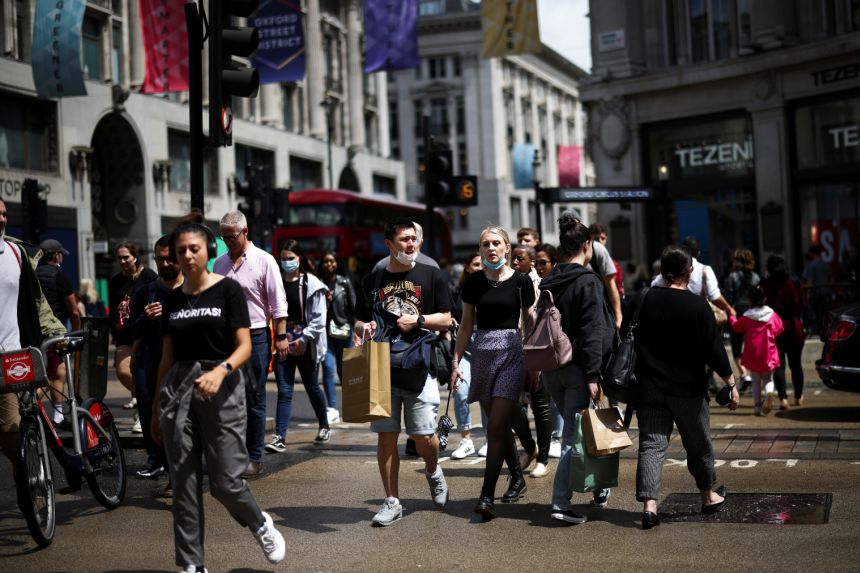How do countries around the world deal with coronavirus?
Throughout the pandemic, we have seen ups and downs for many countries as their strategies for dealing with coronavirus have seen both successes and failures.

No face masks, no social distancing when England ends Covid-19 restrictions on July 19
Even now it might not be clear which is the best way to come through the pandemic. However, to our mind, the “right” course is becoming clearer. What’s more this could work to the advantage of some countries and some currencies that were undermined in the early days of the crisis.
Mr. Steve Barrow, Head of Standard Bank G10 Strategy thinks it has become far clearer recently that a good coronavirus response requires the fast rollout of vaccinations and a high willingness to take up the vaccine among the population.
Mr. Steve Barrow would put the UK as high up on this list, if not at the top. This is a turnaround from the early days of the pandemic when the UK’s response was poor with very high death rates and a very high economic cost given the 10% fall in GDP in 2020. But now, with around 55% of the population fully vaccinated and a relatively low 12% saying they will refuse the vaccine, the UK seems set to come roaring back and overtake many others that chose a different strategy.
One such country was Australia. Its focus was not so much on vaccine procurement but, instead, tough lockdown measures including strict border controls. The resultant fall in GDP in 2020 was very modest at -2.4% and low case numbers for a considerable period of time made it seem like this was the best strategy. But now its low vaccine rollout (just 14% of the population have had both jabs) is costing it dear as the very infectious delta variant of coronavirus causes case numbers to surge again. If that’s not difficult enough, the authorities have the problem that the latest survey suggests that close to 30% of the population is unwilling to be vaccinated, or two and a half times more than in the UK.
Meanwhile, other countries that have relied more on suppression than vaccination appear to be struggling in the same way. Hence, while the currencies of many of these ‘suppression over vaccination’ countries seemed to do well at first, this is no longer the case anymore.
The US tends to find itself in the middle ground in Mr. Steve Barrow’s view. Like the UK, its initial response to the pandemic was seen as very poor under former president Trump. Things have certainly picked up on the vaccine front with close to 50% of the population now fully vaccinated. However, of the remainder, some 29% say that they won’t get vaccinated. That’s again two and a half times the rate we see in the UK and if we look at the average of 13 developed countries outside of the US, we see that only around 17% of individuals are not prepared to have a vaccine. In short, the US might have moved fast with the vaccine but it might have a far harder task in finishing the job off than the UK.

US female doctor taking a throat swab test from a senior man at home for COVID-19 testing.
In contrast, the euro zone seems a bit better placed than the US, for while the vaccine rollout has been slower than the US – and UK – the numbers suggesting that they will refuse a vaccine lie somewhere between the UK and US figures. Only France of the major euro zone nations seems to be higher than the US at around 32% of the unvaccinated population.
In Vietnam, despite drastic actions, localities, especially HCM City and southern provinces, have been facing very complex COVID-19 outbreaks, with much more negative impacts on daily life as well as socio-economic development than the previous waves.
While it does seem clear to us that a ‘best practice’ template is developing to tackle coronavirus we can’t rule out that things could change again, should new variants start to evade vaccines, for instance. But, for now at least, we’d expect most ‘reward’ to be bestowed on the UK and the pound. Of course, that might still not be worth very much.
“Coronavirus is not the only driver of currencies and is certainly not the most important factor. Nonetheless, the pound may still enjoy its time in the spotlight, providing, of course, the spotlight does not shift in a different direction as the virus tries to get around the various traps that are being set for it”, Mr. Steve Barrow said.








